Vietnam's aluminum and steel still have a lot of room
President Donald Trump has signed an executive order imposing a 25% tariff on all steel and aluminum imported into the United States. The aluminum import tariff will increase from the 10% imposed in 2018 to 25%. This policy has had a strong impact on countries exporting steel and aluminum to the United States, including Vietnam.
Mr. Do Ngoc Hung, Commercial Counselor, Head of the Vietnam Trade Office in the United States, said that according to US customs statistics, in 2024, Vietnam will export about 983 million USD of steel and steel products (an increase of nearly 159% compared to 2023) to this market. Vietnam's major steel products exported to the United States include: Galvanized steel (HS code 7210.49); galvanized aluminum steel (HS code 7210.61); plastic-coated steel (HS code 7210.70); stainless steel (HS code 7219.34); alloy steel (HS code 7209.16)...
Regarding aluminum products, statistics from the country's customs also show that in 2024, Vietnam will export about 479 million USD of aluminum and aluminum products to the US market, an increase of 9.5% compared to 2023. Some of Vietnam's major aluminum products exported to this market include: Kitchen cabinets, aluminum tables, aluminum furniture (HS code 7615.10); aluminum alloy (HS code 7604.21); aluminum bars, aluminum wires (HS code 7604.29)...
According to information from the Trade Office, currently, Vietnam's aluminum and steel products are still subject to tax rates of 10% and 25% respectively under Section 232 that the United States has applied since 2018 to most countries.
In addition, aluminum and steel products, especially steel products from Vietnam, are frequent subjects of trade defense lawsuits. Up to now, the United States has investigated more than 34 cases, accounting for more than 50% of the total number of trade defense lawsuits that the United States has investigated with Vietnam, and with aluminum products, there are 2 cases. Regarding aluminum products, the United States has investigated 2 cases.
Mr. Do Ngoc Hung said that the imposition of this new tax will invisibly create a level playing field for countries exporting to the United States, including Vietnam, especially countries that have suffered more from the 2018 term of President Donald Trump. Vietnamese export enterprises will have the opportunity to compete fairly and equally in the US market. Vietnamese exports will compete fairly and equally with major exporting countries in the world .
According to Mr. Hung, Vietnam will have increasingly deeper access to the US supply chain, especially when Vietnamese products have ensured origin and source, with increasingly competitive quality and prices.
Another advantage is that through this tax imposition, Vietnamese enterprises have prepared and have good resistance. However, this tax imposition, from any perspective, will affect global trade. Including the import demand of the US market, so Vietnamese enterprises also need to be prepared.
What should businesses do?
According to the Vietnam Steel Association, the United States is currently the third largest market for Vietnam's total steel exports, after the EU (23%) and ASEAN (26%). Other markets such as India account for 6%, Taiwan 4%, Brazil 3%, Türkiye 3%...
Mr. Nghiem Xuan Da, Chairman of the Vietnam Steel Association, said that businesses need to accept the trade protection policies applied globally, and that Vietnam's 13 million tons of exported steel all "touch" these policies.
“In danger there is opportunity, there is always a chance to continue exporting. Enterprises need to increase competitiveness, reduce costs, ensure clear origin, and grasp the laws of the host country to avoid trade defense measures,” Mr. Da recommended.
Giving advice to Vietnamese aluminum and steel exporting enterprises, Mr. Do Ngoc Hung said that domestic enterprises need to assess the situation to have appropriate business strategies, expand exports to markets that have FTAs with Vietnam, and avoid dependence on one market.
The Head of the Vietnam Trade Office in the United States especially recommends that exporting enterprises need to comply with US regulations on origin and always be ready to fully participate in the explanation process of the US investigation agency on Trade Defense cases. At the same time, closely coordinate with the Ministry of Industry and Trade (Department of Trade Defense) and diplomatic missions abroad to closely monitor the situation to have appropriate responses.
According to many importing countries, Vietnamese goods exported to the US market have competitive prices and good quality, contributing to reducing inflation and greatly supporting bilateral trade activities.
Recommendations for businesses exporting to the United States, Dr. Le Quoc Phuong, former Deputy Director of the Center for Industry and Trade Information (Ministry of Industry and Trade) assessed that businesses need to outline scenarios to be ready to respond to possible tariffs from the United States. In case of low tariffs, it is necessary to continue to stick to the market and implement technology investment solutions, optimize production costs to reduce costs and increase profits.
Along with that, businesses also need to continue to diversify markets, implementing the strategy of "not putting all your eggs in one basket" to avoid possible risks from the import market. At the same time, closely follow information from the Vietnam Trade Office in the United States and Vietnamese representative agencies in the United States to grasp information, and have timely response measures to changes from your side (if any).
In particular, according to Dr. Le Quoc Phuong, the US's high tariffs on neighboring countries may lead to businesses in those countries exporting goods to Vietnam, falsifying the origin, and then exporting back to the US. This has happened before and when discovered, it has affected Vietnam's entire export industry. Therefore, Vietnamese businesses need to deeply consider the issue of long-term benefits, absolutely avoiding the situation of partners falsifying the origin, "taking advantage" to affect the export of the entire industry and the country.
Vietnamese small and medium enterprises need to join together to increase synergy, increase resilience, stabilize the supply chain, find partners, and share risks. There needs to be close coordination between enterprises and the Government in warning, sharing information, and proposing appropriate policies.
Vietnamese and American goods complement each other. Regarding the US market, the Ministry of Industry and Trade assessed that in terms of economic and trade relations, the two economies are complementary in nature, the export and foreign trade structures of the two countries do not compete directly, but complement each other, in accordance with the internal needs of each country. Vietnamese goods exported to the US mainly compete with third countries, not directly with US enterprises in the US market. On the contrary, it also creates conditions for US consumers to use cheap Vietnamese goods. In the coming time, the Ministry of Industry and Trade assesses that the economic and trade pillars will continue to develop steadily in the overall comprehensive strategic partnership between Vietnam and the United States. Any existing issues in bilateral economic and trade will be proactively discussed through the policy dialogue mechanism of the Vietnam - US Trade and Investment Council (TIFA), which is being maintained regularly, continuously and effectively at all levels, to strengthen strategic trust between the two countries, create a common vision, contribute to long-term orientation and stabilize the development roadmap of bilateral economic and trade relations. According to the Ministry of Industry and Trade, to continue to develop in the context of a volatile and difficult world economy, in addition to the efforts of the Government, ministries, departments and sectors, it is also necessary to rely on the sensitivity, proactiveness in following the market and the ability to adapt, explore and develop the competitiveness of the enterprises themselves. Enterprises need to continue to proactively build roadmaps and solutions to diversify export markets, improve product quality, ensure technical standards, labor, environment, etc. |
Source: https://doanhnghiepvn.vn/kinh-te/hoa-ky-ap-thue-25-co-hoi-nao-cho-xuat-khau-nhom-thep-viet/20250214093252861


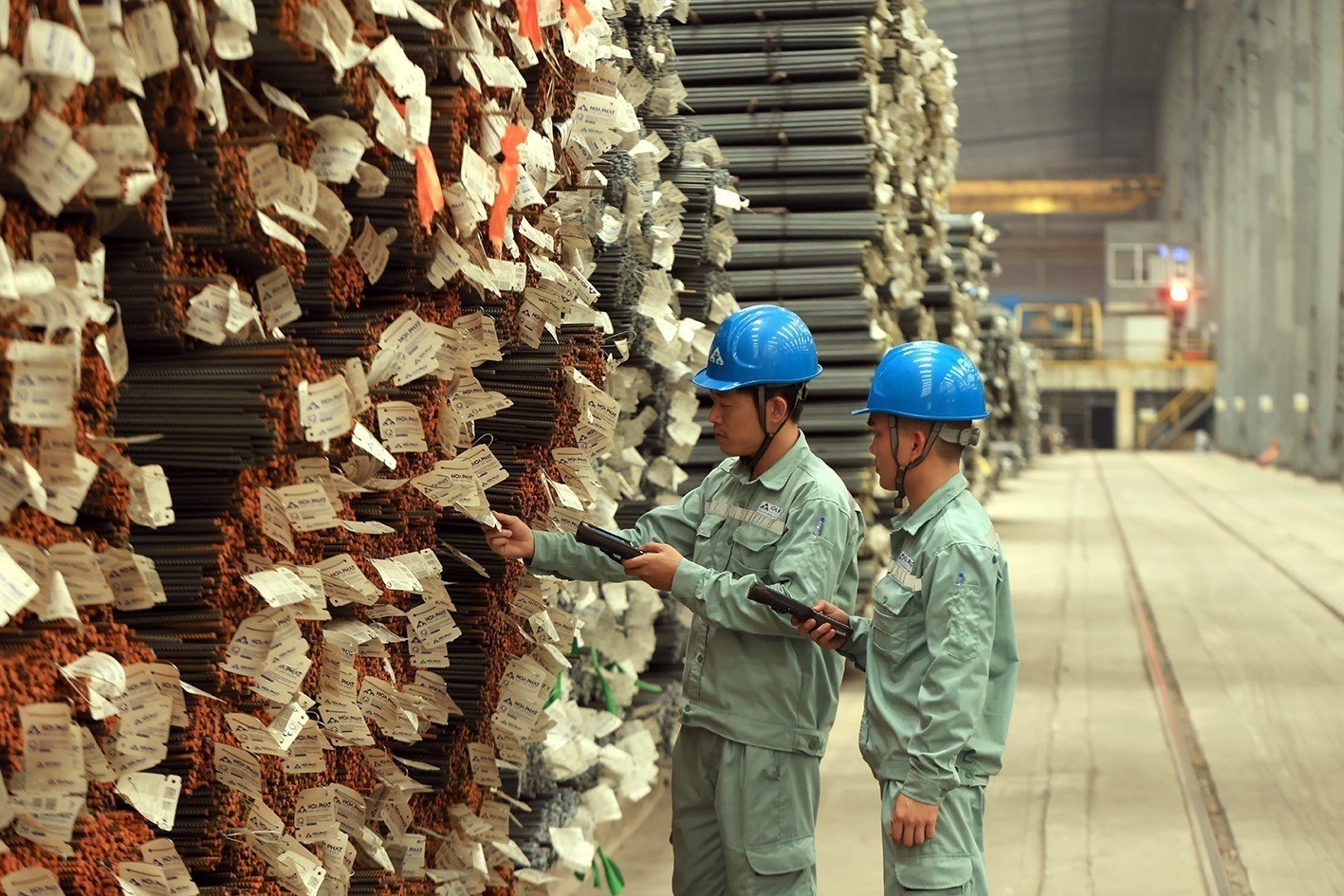


![[Photo] Prime Minister Pham Minh Chinh chairs meeting on science and technology development](https://vphoto.vietnam.vn/thumb/1200x675/vietnam/resource/IMAGE/2025/5/17/ae80dd74c384439789b12013c738a045)
![[Photo] More than 17,000 candidates participate in the 2025 SPT Competency Assessment Test of Hanoi National University of Education](https://vphoto.vietnam.vn/thumb/1200x675/vietnam/resource/IMAGE/2025/5/17/e538d9a1636c407cbb211b314e6303fd)
![[Photo] Readers line up to visit the photo exhibition and receive a special publication commemorating the 135th birthday of President Ho Chi Minh at Nhan Dan Newspaper](https://vphoto.vietnam.vn/thumb/1200x675/vietnam/resource/IMAGE/2025/5/17/85b3197fc6bd43e6a9ee4db15101005b)





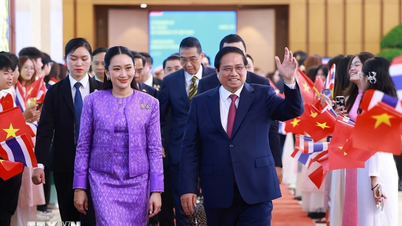

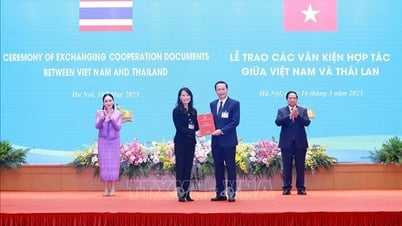







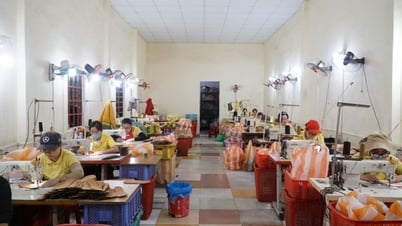








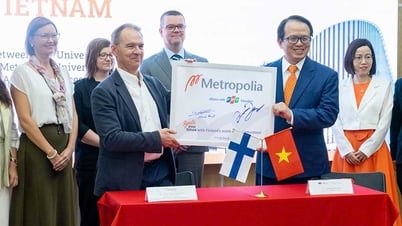


![[Photo] Nearly 3,000 students moved by stories about soldiers](https://vphoto.vietnam.vn/thumb/1200x675/vietnam/resource/IMAGE/2025/5/17/21da57c8241e42438b423eaa37215e0e)







































































Comment (0)